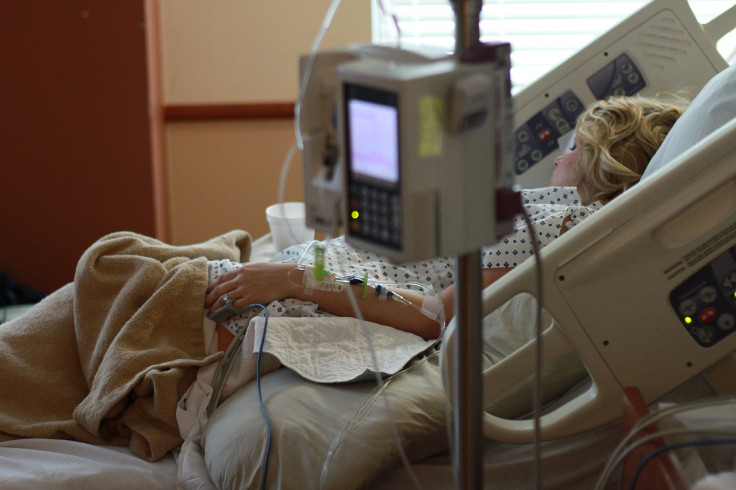NYC City Council Approves Bill That Lets Patients Compare Hospital Prices Online
KEY POINTS
- The bill, sponsored by New York City Council member Julie Menin, passed the chamber 50-0
- It proposed the creation of a new office of 'health care accountability' within city government
- It is aimed at protecting patients by allowing them to compare hospital prices and make better healthcare choices
New Yorkers will soon be able to compare the cost of medical procedures from different hospitals online, owing to new legislation passed by the City Council to improve price transparency in the city's healthcare business.
The bill will make way for patients to compare the costs of medical procedures at private hospitals vs. city-run medical facilities at a time when Americans with medical needs are often burdened with exorbitant prices of hospital services, according to the New York Post.
The legislation was passed Thursday in an effort to keep a check on the healthcare business and to also empower customers with the means to make a better and more informed choice about their hospital care.
The bill, sponsored by New York City Council member Julie Menin and backed by Mayor Eric Adams, proposed the creation of a new office of "health care accountability" within city government and eventually offer New Yorkers an online platform to compare hospital prices.
Patients normally choose a hospital based on factors like reputation and location, but New Yorkers will soon be able to factor in the hospital prices before choosing a hospital to visit.
Same Procedures, Different Prices
Typically, no two hospitals charge the same price for the same procedure, be it an endoscopy or a foot x-ray. Hence, the new bill aims at protecting customers during a time when they are already vulnerable due to their medical issues.
Patients are often faced with sky-high hospital prices, as the average hospital stay in the US is 4.6 days at an average cost of $13,262. When it comes to healthcare in New York, the cost for the same procedure widely differs from hospital to hospital.
While a cesarean section delivery in Montefiore Hospital in the Bronx would normally be around $55,000, it would cost about $18,000 at New York City-run hospitals, the New York Times reported.
Moreover, an outpatient colonoscopy at New York-Presbyterian would cost about $10,368, while the same procedure at Mt. Sinai Hospital would cost about $4,139. The procedure would be even cheaper, costing $2,185, in the city's public hospital system.
"There is no other area where, as a consumer, you're procuring a service and you have no idea what you're going to be charged," Menin previously said. "This is a simple, straightforward consumer protection measure."
She also said the new bill would protect consumers from being caught off-guard because they will be able to compare the prices online beforehand.
What other industry are consumers left totally in dark about charges? A C-section in NY costs $55,000-$18,000 depending on hospital. My legislation w/ @Lynn4NYC @CMMercedesCD46 creates nation’s first Office of Hospital Accountability. https://t.co/sjEkSziuFM
— Julie Menin (@JulieMenin) September 22, 2022
Support and Opposition for the Bill
The bill passed the chamber with a 50-0 majority in support of the proposed online platform to compare hospital costs.
Mayor Adams had also shown his support for the bill.
"This bill will make it easier for New Yorkers to find information on hospital pricing, and we're grateful to our partners in labor and the Council for pushing this forward," said Kate Smart, a spokeswoman for the mayor.
On the other hand, the bill was strongly opposed by Greater New York Hospital Association (GNYHA), the state's most powerful hospital and health system trade association. It argued that hospitals were already complying with federal regulations enforced in 2021 that mandated the publishing of all their prices, following negotiations with private insurers.
However, a survey of 2,000 hospitals, conducted by a nonprofit patient rights group, found that only 24 percent of the hospitals were complying with the federal regulations.
GNYHA president Kenneth E. Raske told the New York Post, "Hospitals in New York City face severe economic pressures, including Medicaid and Medicare reimbursement that doesn't come close to covering the cost of care."
"This bill does nothing to address those underpayments and offers struggling safety hospitals no financial support," Raske continued. "Instead, it wrongly blames hospitals for rising health care costs while ignoring national insurance companies that ship their massive profits out of New York. Our hospitals deserve better."
David Rich, an executive vice president at GNYHA, also said the bill should be targeting insurance companies instead of hospitals.
"It virtually ignores the behemoth national for-profit health insurance companies that make enormous profits in New York's health care economy and ship those profits out of New York to their parent organizations and shareholders," he said.
A "Game-Changer" for the Uninsured
Supporters of the bill believe that comparing hospital costs online beforehand would be of great help to families with limited budgets or no insurance, especially since 60%-65% of all bankruptcies are linked to medical expenses.
"If you're uninsured, this bill is a game-changer," Menin said earlier.
Menin also said the bill would help curb the city's budgeting issues by first checking how much city workers are paying for their healthcare at various hospitals and then suggesting options to lower the price. Nearly $2 billion could reportedly be saved this way.
"As we head into this very typical fiscal crisis that we're in, and particularly around issues around the migrants, we need to save money," Menin said.
"This is one of the few where we can ... if we were to enact this bill, build a robust office of health care accountability and utilize it to drive down costs by harnessing the city's purchasing power," she added.

© Copyright IBTimes 2024. All rights reserved.






















